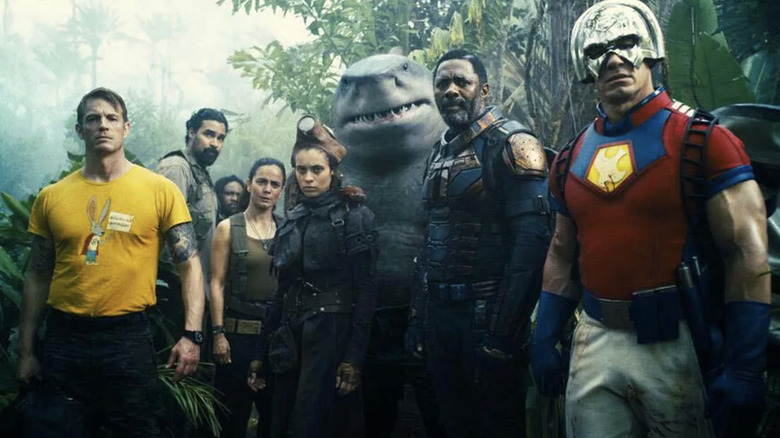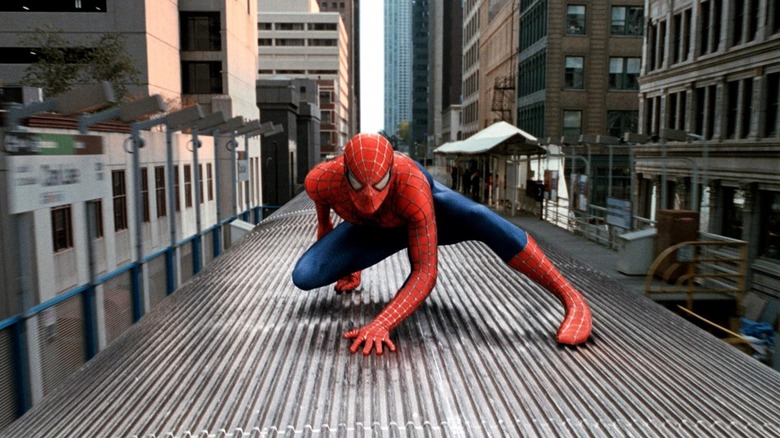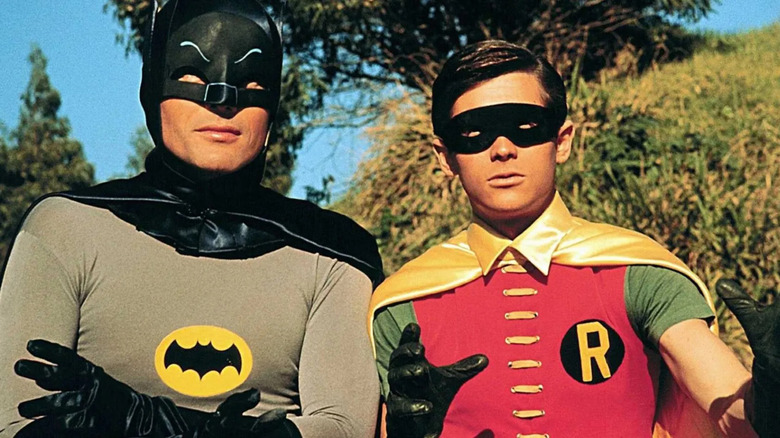James Gunn Explains How The DC Universe Will Be Different From The MCU
For many decades, Marvel Comics and DC Comics have battled for dominance over the superhero comic book market. Each consisted of its own massive canon of superhero characters, occasionally printed massive, company-wide crossover events, and both produced multiple recognizable characters that have become a near-permanent part of the pop consciousness. Marvel Comics proudly oversaw the likes of Captain America, Spider-Man, the Incredible Hulk, the Fantastic Four, the X-Men, and, uh, Armless Tiger Man. DC Comics oversaw Batman, Wonder Woman, The Flash, Superman, and, uh, Matter-Eater Lad.
The heated debates overheard in comic book stores could never be reconciled, as many comic book readers tended to be loyal to one company or the other, but rarely both. Such debates frequently included detailed arguments as to how the universes differed.
Most of the time, the debate came down to one crucial difference: Marvel Comics were set in the "real world," and DC Comics were set in a fantasy world. Spider-Man, for instance, lived in New York City and often had to worry about practical things like paying bills and dating. Nothing came easy to Spider-Man. He was relatable. Superman, meanwhile, lived in Metropolis, an imaginary city where Supermen more naturally fit. Everything came easy to Superman. He was aspirational.
/Film's own Jenna Busch recently attended the DC Presentation, a press event wherein James Gunn and Peter Safran, the co-chairs and co-CEOs of DC Studios announced their plans for new DC Comics-based movies and TV shows, and Gunn reiterated the old Marvel/DC argument succinctly, pointing out that his new DC Universe and the old Marvel Cinematic Universe will also bear similar differences (not to employ an oxymoron).
The DCU goes MCU?
At the press event, James Gunn wanted to assuage fears that his DC Universe and the MCU were going to be different entities. They were both to be massive, interconnected superhero-based media franchises that sported a similar tone throughout each chapter, each one overseen by a captain-like showrunner, but, Gunn explained, the tone would be markedly different. It may help that Gunn has already directed feature films in both series (four "Guardians of the Galaxy" projects for the MCU, and two "Suicide Squad" projects for the old DCEU). He said:
"A lot of people think it's gonna be Marvel 2.0, and definitely I learned a lot of stuff at Marvel, you know. I think that we have a lot of differences. I think that one of the reasons why I love DC is it really is another universe, it's an alternate world."
The MCU, if one recalls its origins, began in a real world without superheroes, and slowly added them one at a time, until a hundred of them could form their own ersatz military force. DC Comics, Gunn says, is a universe where superheroes will naturally fit. There won't be a need to slowly introduce people into the world if it feels like Superman already belongs there. Gunn added:
"You know in Marvel, generally, it's New York, Chicago, San Francisco, and then every place else in the world is a fictional universe for some reason. Here at the DCU we have, you know, Metropolis and Gotham and Themyscira and Atlantis and Bialya, and all of that is sort of another fictional universe and this is the world that we're creating. We're coming into a world where superheroes exist and have existed for some time in one form or another, and that's the universe."
Planning it from the start
Gunn also points out a distinct advantage his new DCU will have over the MCU and any previous superhero media: they have a plan. Even the MCU didn't start out as the MCU, with "Iron Man" and "The Incredible Hulk" being released prior to Disney's acquisition of Marvel in 2009, and prior to plans for an interconnected universe being put into motion. Eventually, a plan came together, but fans of the MCU can point to films like "Iron Man 2" and "Avengers: Age of Ultron" as being exposition-heavy and perhaps too focused on setting up events in future movies.
With that in mind, and with the now-moribund DCEU discarded, Gunn can plan out his universe more carefully. He said:
"[W]e are telling a big huge central story that is like [the MCU] ... except for I think that we're a lot more planned out than Marvel from the beginning because we've gotten a group of writers together to work that story out completely. But we're also creating a universe that is like, you know, 'Star Wars.' Where there's different times, different places, different things. Or like 'Game of Thrones,' where characters are a little bit more morally complex."
Superheroes, as the moniker implies, can't be too complex, else they would just be violent people who solve problems with fists. If there are irredeemable supervillains in the world, however, then their violence is morally justified. Moral greys, however, are appreciated. "Star Wars," meanwhile, has — for decades — gotten a lot of mileage out of revisiting old areas of its timeline and filling them in with backstory and detail. It seems the DCU will skip around a lot.
No films in the DCU series have yet been made. The time has now come to wait.


